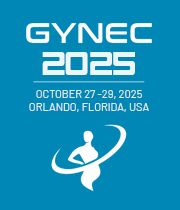Title : Dual GLP-1 and GIP receptor agonists in women with PCOS: A comprehensive review of metabolic, reproductive, and psychiatric outcomes
Abstract:
Polycystic ovary syndrome (PCOS) is a complex endocrine disorder involving metabolic dysfunction, reproductive abnormalities, and psychiatric comorbidities. Traditional therapies often fall short of addressing this multidimensional burden. Incretin-based therapies—especially dual GLP-1 and GIP receptor agonists—are emerging as potentially transformative agents in PCOS management. This manuscript review explores the current landscape of GLP-1 and dual GLP-1/GIP receptor agonists in women with PCOS, evaluating their metabolic, reproductive, and psychiatric effects. A comprehensive review of peer-reviewed publications—including clinical studies, animal models, and observational reports—was conducted to synthesize the known benefits, limitations, and safety considerations of incretin therapies in the PCOS population. GLP-1/GIP agonists demonstrated consistent benefits in weight reduction, insulin sensitivity, and hepatic fat reduction. Reproductive benefits included improved ovulatory function, menstrual regulation, and reductions in hyperandrogenism. Psychiatric outcomes were mixed: some patients reported improved mood and reduced emotional eating, while others experienced emotional detachment and emerging mental health concerns. Real-world data highlighted additional risks including nutritional deficiencies, fatigue syndrome, and under-supervised prescribing. Dual incretin receptor agonists, particularly tirzepatide, show promise as comprehensive therapies for PCOS. However, careful patient selection, psychiatric screening, and long-term safety monitoring are essential to maximize benefit and minimize harm.
Keywords: PCOS, GLP-1 receptor agonist, GIP, tirzepatide, insulin resistance, fertility, mental health, obesity



